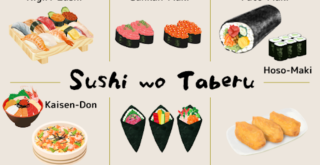Do you think Japanese is difficult?
Learning to read and write is not easy.
How about speaking and listening?
The Japanese language has “katakana” to represent words from foreign languages.
Katakana is used to represent words from foreign languages in Japanese.
Once you get used to the Japanese pronunciation of katakana words used in conversation, you will be able to understand many words.
For example:
「スターバックスでキャラメルフラペチーノとドーナツが食べたい」
“Starbucks de Caramel Frappuccino to donut ga tabetai.”
It is only a matter of time before you will be able to somehow understand what they are talking about.
However, what you have to be careful of is Japanese-English, which has evolved uniquely in Japan.
Many katakana are used in ways that are unrelated to their original meaning.
In this article, we will introduce some complicated Japanese-English words that native English speakers should be aware of in Japan.
バスルームはどこですか? “Where is the bathroom?”
If you wanted to go to the bathroom and asked,「バスルームどこですか?」 “Bathroom wa dokodesuka?” where do you think you would be directed?
It is the bathing room.
In Japanese houses, toilets and baths are kept separate.
So, we don’t call the toilet a “bathroom.”
When you say,「バスルームに行きます」 “I’m going to the bathroom,” at a Japanese friend’s house, they might get surprised.
チップスを食べる “Eating chips”
When we speak of chips in England, we mean French fries.
In Japan, chips mean potato chips.
They are the same potato, but they are completely different foods.
If you say to a Japanese friend, “I want chips,” he or she may offer you nori sio (seaweed salt) flavored potato chips.
スマートな人 “Smart person”
What kind of person do you consider smart?
Smart people, clever people, and stylish people come to mind, right?
In Japan, the word “smart” is used to describe a person’s physical shape.
Slim people are called smart.
Both are words of praise, but they have completely different meanings, so please be careful how you use them.
サイダーを注文する “Order a cider”
Cider is a drink in Japan.
However, if you order it thinking it is cider, you will not get apple juice or apple wine.
Cider is a clear carbonated juice in Japan.
Of course, it is non-alcoholic.
Ramune, a traditional drink, is also a type of cider.
ドライバー “A driver”
A driver is a person who drives a car.
This is the same in Japan.
But it also means “screwdriver” in Japan.
It is a tool used to turn a positive or negative screw.
And the club used to hit a golf tee shot (the first shot) is also called a “driver.”
So you need to determine which “driver” it is from the content of the conversation.
Summary
Japanese-English that differs from the original English meaning may be confusing.
There are many foreign words in katakana.
Once you get used to katakana, you will feel more familiar with the Japanese language!
Let’s have a fun conversation using katakana at Ohanashi Kagawa!







